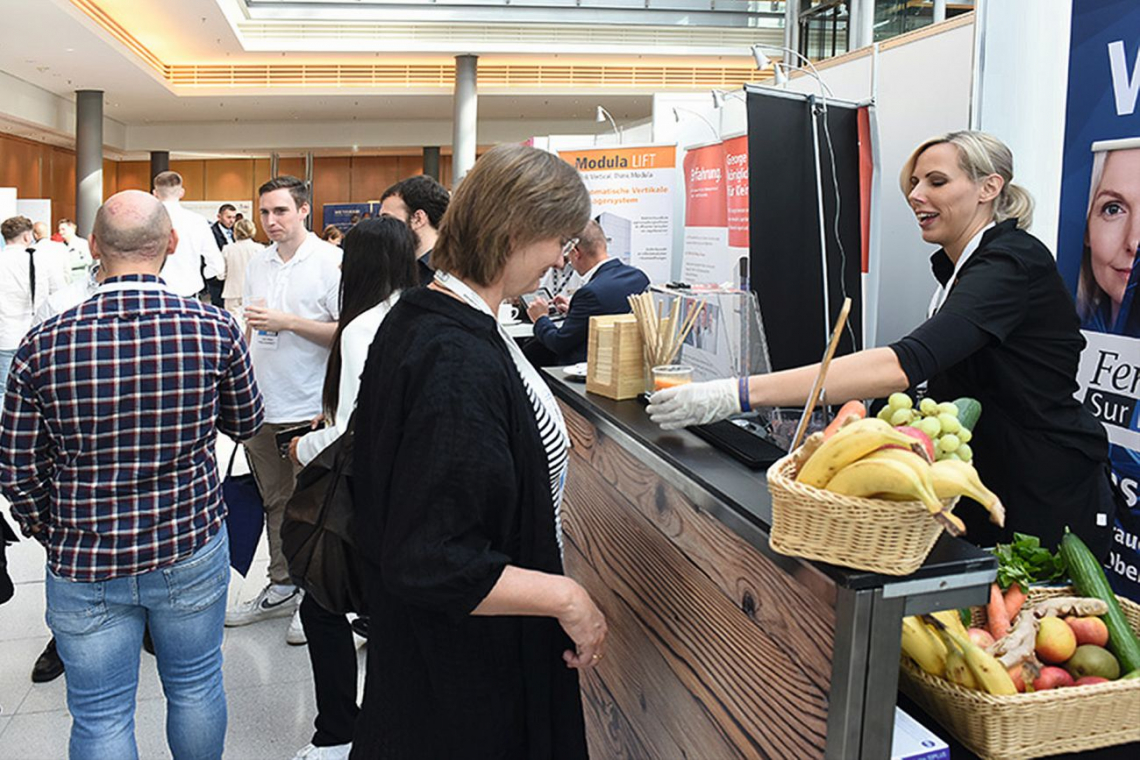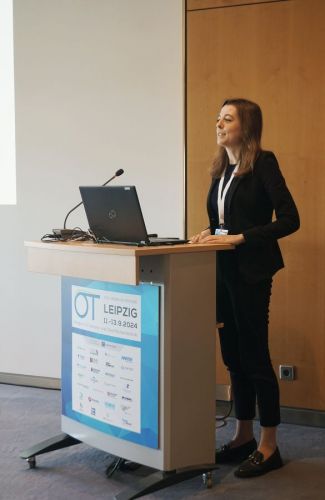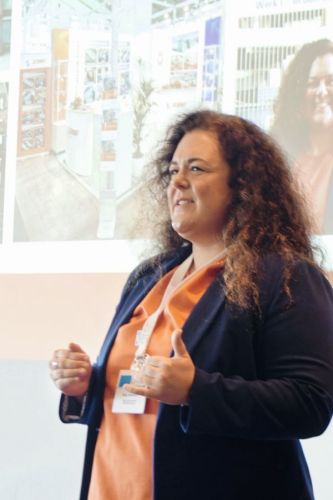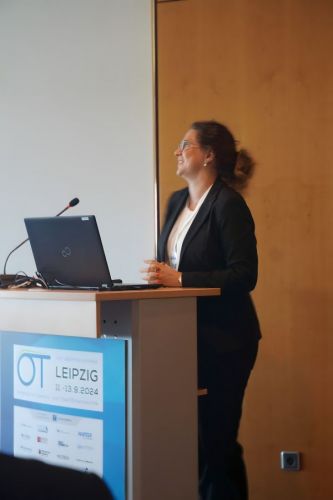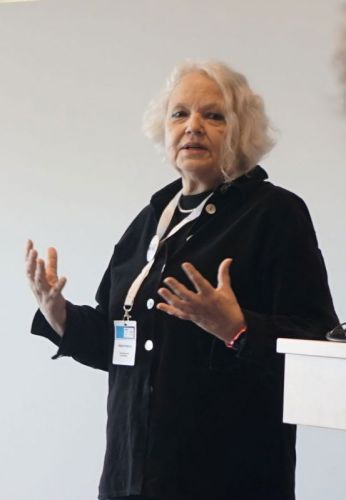At the Surface Days last September, a total of eleven speakers gathered in three lecture blocks under the title "Young Colleagues". The lecture series gives young scientists in electroplating technology a stage to present their work. The lectures were well attended by both the speakers' young colleagues and seasoned professionals. In this final part of the report, two further highlights of the three-day Surface Days play a role: the consultation hour on regulatory developments in environmental and chemicals policy and the presentation of the ZVO women's network Female (Sur)Faces
Although there are no predefined topics for the "Young Colleagues" contributions, there was a strong focus on battery technology and other sustainable technologies in September. Fortunately, however, there were also papers on fundamental electroplating topics that could potentially benefit the current mainstream of the coating industry. This year's Young Talent Award was presented to Philipp Scherzl for his work in the field of electroforming for battery electrodes at Aalen University. Philipp Scherzl gave a presentation on this topic last year at the Surface Days in Berlin.
The presentations in detail
Christoph Kiesl from fem in Schwäbisch Gmünd addressed the topic of "Post-lithium batteries". If defossilization relies unilaterally on electrification through lithium-ion technology, this is known to entail strategic risks due to the limited availability of lithium minerals. Alternative approaches such as calcium anodes are gathering under the catchphrase "post-lithium". In his presentation, Christoph Kiesl focused on his work on the separation of calcium from non-aqueous electrolytes. The process is used to produce anodes.
Dr. Mathias Weiser (Fraunhofer IKTS, Dresden) reported on the results of the IGF project "Elektro-SnOx". This involves porous tin oxide as an electrode material for highly efficient lithium-ion batteries. The manufacturing process consists of tin deposition from a commercially available tin electrolyte and the anodic oxidation of the tin to produce the porous oxide.
The first session of the "Young Colleagues" was rounded off with another presentation from the general field of "Renewable Energies", namely hydrogen technology. Dr. Johannes Näther from Mittweida University of Applied Sciences showed that electrochemical know-how is required twice for the production of electrodes for acidic water splitting: firstly, in the question of which electrode materials are particularly suitable for efficient water splitting, and secondly, how precious metal catalyst particles (in this case IrRu) can be deposited in a particularly material-saving manner in order to produce the electrodes.
The first lecture of the second session of the "Young Colleagues" was presented by Lukas Esper from TU Ilmenau. It generally dealt with the electrochemical polishing of workpieces produced using the laser sintering process, which are known to have a high surface roughness. A medical implant (a "stent") made of 316L stainless steel served as a concrete example. This type of implant is also partially processed by electropolishing in conventional manufacturing processes in order to smooth the surface. The surface quality currently required cannot yet be achieved with laser-sintered parts.
Nurul Amanina Binti Omar from Mittweida University of Applied Sciences already presented an exciting method of producing NiPB layers in 2023, in which boron particles are first co-deposited in chemical NiP and then the ternary phase with promising properties is produced by heat treatment. In this year's paper, Omar focused on the corrosion resistance of the unique alloy and ventured into the field of comparability of salt spray testing and electrochemical polarization and impedance measurements. As expected, the results were discussed controversially.
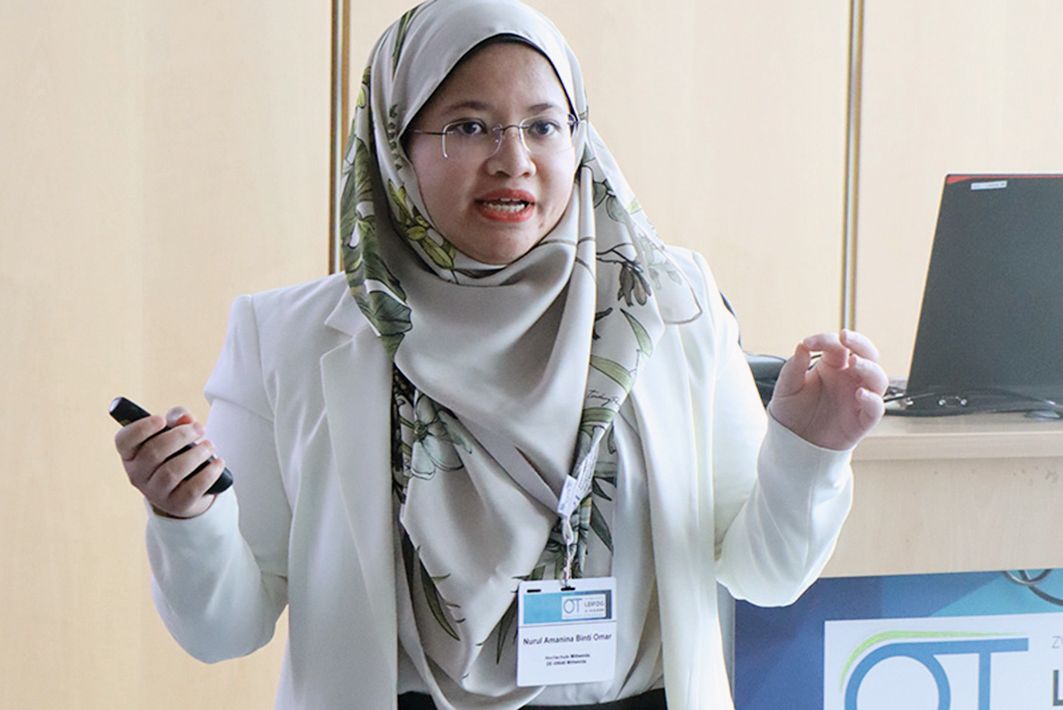 The "young colleague" Nurul Amanina Binti Omar from Mittweida University of Applied Sciences spoke about the corrosion resistance of NiPB coatings
The "young colleague" Nurul Amanina Binti Omar from Mittweida University of Applied Sciences spoke about the corrosion resistance of NiPB coatings
Classic surface technology and renewable energies came together in the presentation by Lea Breu from Robert Bosch Manufacturing Solutions GmbH. Parameters such as current intensity and process time influence the structure of the oxide layer during the anodic oxidation of aluminum. Lea Breu investigated how these parameters influence hydrogen permeation so that the aluminum components can be used in hydrogen technology applications.
Lukas Böttger's presentation on the properties of anodizing layers was then very fitting. The Chemnitz University of Technology student focused on using porous oxide layers to improve the adhesion of polylactic acid (PLA) plastic in aluminum-plastic composite components. The PLA plastic is applied here using a melt application process and, as expected, the parameters in this step have a major influence on the result. Böttger has shown impressive scientific rigor in the planning of his experiments and the preparation and presentation of the results. The study was carried out as part of a project.
Influencing variables in the electrochemical deposition of various alloys have always been part of the wealth of knowledge and experience in electroplating technology. Scott Dombrowe from Mittweida University of Applied Sciences impressively demonstrated that there is still uncharted territory to be discovered in this field of knowledge. Dombrowe has carried out research and development work in the field of nickel-rhenium alloy deposition and has identified some drastic influences of the deposition conditions on efficiency and alloy composition.
Stephan Daniel Schwöbel, who works in Prof. Lampke's research group at Chemnitz University of Technology, reported on progress in the modeling and simulation of electrochemical deposition processes. He initially chose the simple model system of an additive-free (or "-poor") acidic copper deposition. Even here, hours of calculations on powerful computers are sometimes necessary as soon as the consideration is extended from the primary to the secondary current density. As a mathematician, Schwöbel can work at the level of optimization algorithms and is not dependent on commercial programs, which will benefit future application to more complex systems.
The contribution by Jonas Rehbein (TU Ilmenau) marked a return to classical electroplating technology with a concrete, practical application: the addition of sulphur in soluble nickel anodes leads to depolarization and thus to more efficient and more uniform resolution. If pure nickel anodes are used, this has a potential influence on the layer properties of the deposited nickel layers, for example on the internal voltage. A topical aspect is the influence of PFAS-free versus PFAS-containing wetting agents on the layer properties.
Suvetha Logeswaran from Aalen University has taken up the challenge of improving the understanding of particle co-deposition through an energetic approach. The model system chosen was a nickel matrix with SiO2 particles. In order to determine the SiO2(glass)/nickel interface energy, glass substrates were metallized using PVD and then subjected to a pull-off test ("PosiTest"). The subsequent discussion provided valuable information on how to overcome existing practical hurdles in this approach.
Regulation consultation hour
The lecture program also included a consultation hour by the ZVO's Environmental and Chemicals Policy department. As in 2023 in Berlin, it was designed as a Q&A session: Experts from the department were available for information and discussions: for legal questions Dr. Georg Hünnekens, for general regulation, automotive Kirsten Plessow, for regulation in small and medium-sized enterprises, authorization and BREF Christian Röhrig and for all other questions on regulation Dr. Malte Zimmer.
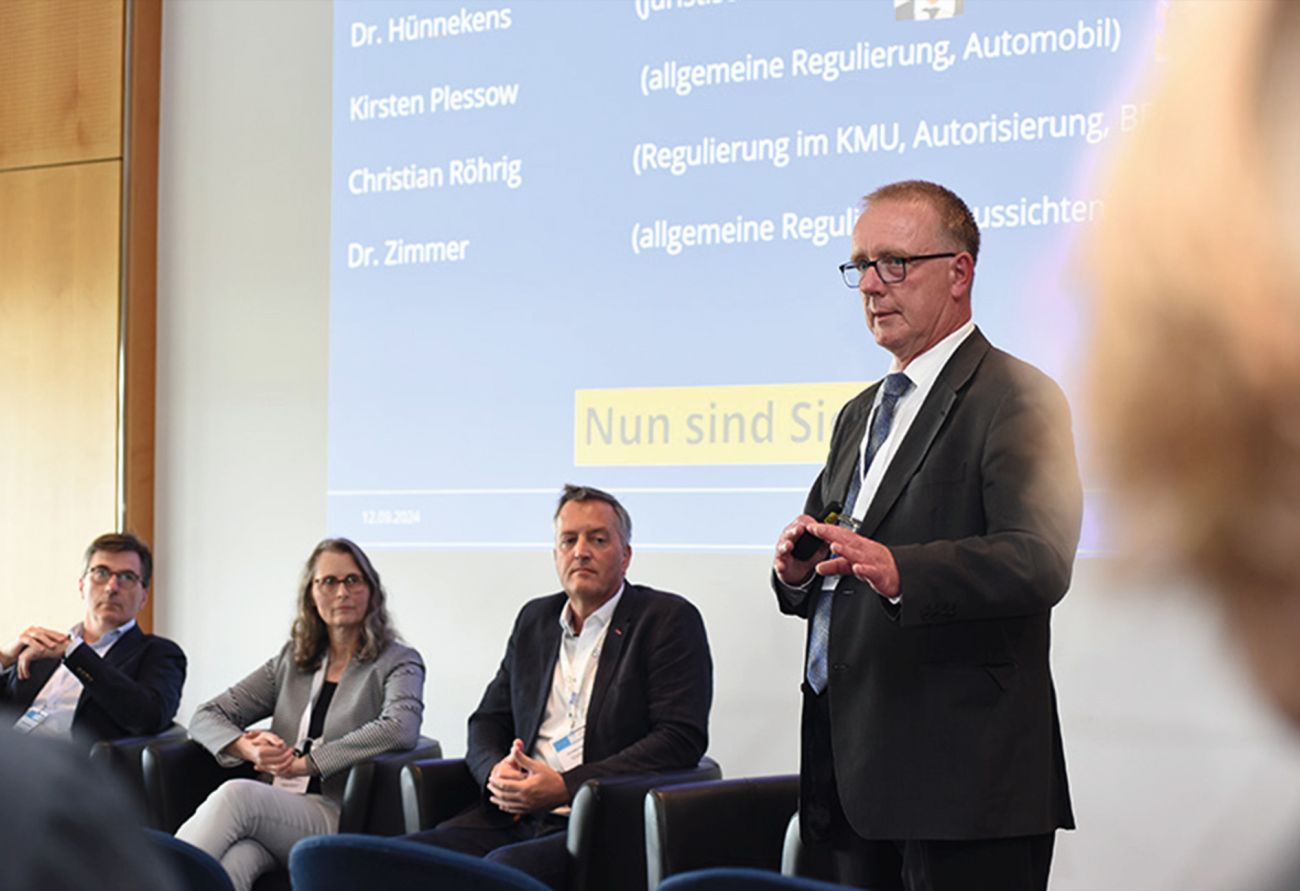 Consultation hour for regulation: Dr. Georg Hünnekens, Kirsten Plessow, Christian Röhrig and Dr. Malte Zimmer from the ZVO Environment and Chemicals Department
Consultation hour for regulation: Dr. Georg Hünnekens, Kirsten Plessow, Christian Röhrig and Dr. Malte Zimmer from the ZVO Environment and Chemicals Department
After introducing the department, head Dr. Malte Zimmer addressed a number of key topics that could be significant and more than challenging for the industry. These included the topic of chromium trioxide under REACH, the PFAS restriction draft and the current revision of the STM-BREF on the basis of the revised Industrial Emissions Directive 2.0. In future, the latter will not only involve the treatment and regulation of emissions, but also the specification of the quantities of permitted input materials (so-called BAT-AEPLs, which stands for Best Available Technique-Associated Environmental Performance Level), including water and energy. This requirement calls into question the free choice of products and production processes as well as further developments. Expert opinions that prove that a process cannot be operated with fewer input materials are intended to offer a way out of this encroachment on entrepreneurial freedom. While the directive increases the costs and time required for approvals, it also increases bureaucracy and planning uncertainty. The only beneficiaries will be consultants, who will have to support companies in drawing up documents that comply with official requirements, it was said.
The topic of BREF dominated the consultation; for many, these massive regulations were largely new. The question arose as to how far regulation should go, given that the proportion of non-value-adding activities has already reached an unhealthy level - at least for SMEs. The question was also raised as to how and with what wording the reaction should be.
It was regretted that only around 30 of the numerous participants at the Surface Days had found their way to this consultation. The consultation ended with an invitation to actively participate in the department, which on the one hand serves to provide information and on the other hand strengthens the association.
Female (Sur)Faces
The ZVO's women's network, founded in November 2023, introduced itself for the first time. Female (Sur)Faces Director Dr. Elke Moosbach began by outlining the origins, development, goals and projects of the network, which aims to increase the proportion of women in electroplating and surface technology and at the same time counteract the shortage of skilled workers by recruiting more female specialists. The relevance of these aspects was already evident when looking at the proportion of women at the ZVO Surface Days: in 2023 only 10 percent of participants were female, in 2024 already 15 percent, as Dr. Elke Moosbach presented.
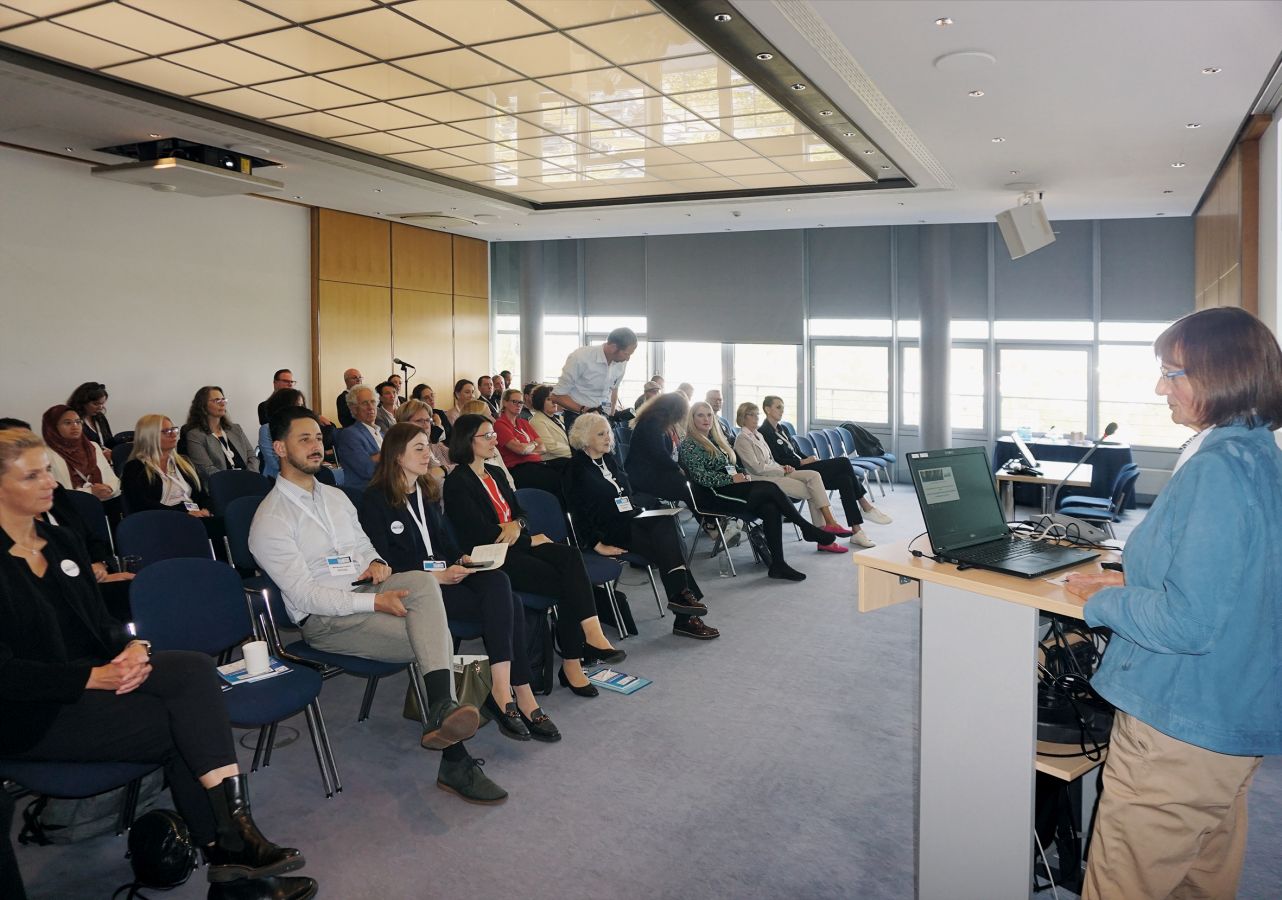 Dr. Elke Moosbach started the presentation of the Female (Sur)Faces at the Surface Days
Dr. Elke Moosbach started the presentation of the Female (Sur)Faces at the Surface Days
To give the network a face, four role models were introduced, each of whom gave a short presentation:
Hannah Betz from Betz Chrom began. She spoke about the history of her company, which has been characterized by strong female leaders from the very beginning. In the 1950s, her grandmother Ilse Betz ran the company, who was initially regarded as a model housewife and even appeared on the TV show "Die optimale Frau". She later became a "tough" businesswoman. "It's a process to get a grip on your life," says Hannah Betz of the change today.
She was followed by Sally Kulemann, who has worked at Barth Galvanik in Oberursel for 17 years. She took part in a management development program and now manages a team of 50-60 employees.
Lisa Büker from Kiesow Oberflächentechnik in Detmold described her career path from training as a chemical laboratory assistant to gaining her doctorate in 2017. The designated laboratory manager at Kiesow Oberflächentechnik advises women in surface technology to network in order to receive support.
One woman who is already very successful in electroplating and surface technology is SurTec co-founder Patricia Preikschat, who was the last role model to "enter the ring" in Leipzig. She named three things in her life that set the course for her career: Her parents trusted her to do everything; during her youth in the 1970s, she only realized "the disadvantage of being a girl" late in life; moreover, a miraculous coincidence led her to electroplating technology: as a result, she was able to deputize for a laboratory manager just two years after starting her career and then later took over this position completely.
The descriptions of the role models were followed by a keynote speech by Tanja Gebel, WHW Hillebrand. It was about mentoring as an instrument of personnel development. The tenor of the presentation: The surface industry can benefit from the use of mentoring, especially women, who can be supported with this instrument in the still male-dominated industry to develop successfully and efficiently.
Katja Feige from Fraunhofer IPA in Stuttgart also presented a very important topic with her lecture on working time models. The most important content: a survey by Female (Sur)Faces, which ran from mid-July to the end of August 2024 and aimed to record personal experiences, wishes and suggestions on working and working time models, home office options, childcare and the general promotion of women. The questionnaire was addressed to both women (29 responses) and companies (54 responses).
Result: Flexible working time models are appreciated by employees and companies and are widespread. However, there were also differences in the perception and implementation of certain aspects such as working from home, childcare and the advancement of women. Feige concluded that companies should tailor their offers even better to female employees and talk more intensively to women about existing offers in order to eliminate uncertainties. The event ended with a lively discussion led by moderator Judith Klups.
The ZVO Surface Days 2025 will take place in Berlin from September 24 to 26, 2025. The deadline for registering presentations is January 31, 2025.

